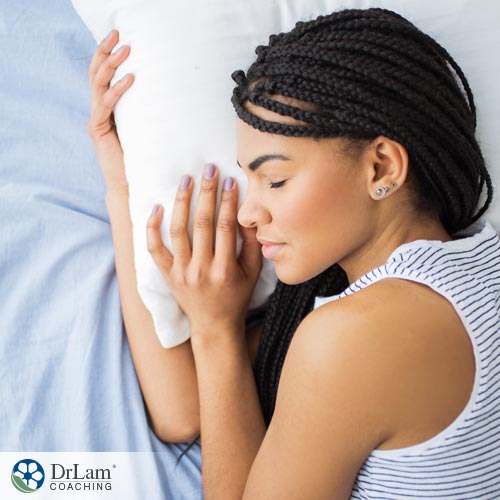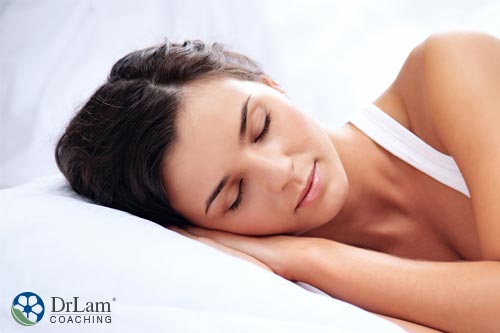 A poll by the National Sleep Foundation found a steady decline in the number of hours Americans sleep each night. In 1975, the average American slept 7.5 hours, down from 9 hours in 1910. Today, adults sleep about 7 hours a night. Perhaps the importance of hormones and sleep patterns has been overlooked. This is important information for everyone in terms of their general health, but it’s even more important for people who have Adrenal Fatigue Syndrome (AFS) and are looking for ways to boost their recovery.
A poll by the National Sleep Foundation found a steady decline in the number of hours Americans sleep each night. In 1975, the average American slept 7.5 hours, down from 9 hours in 1910. Today, adults sleep about 7 hours a night. Perhaps the importance of hormones and sleep patterns has been overlooked. This is important information for everyone in terms of their general health, but it’s even more important for people who have Adrenal Fatigue Syndrome (AFS) and are looking for ways to boost their recovery.
As the human body ages, the changes in sleep patterns appear to trigger shifts in the endocrine system, altering hormone levels and metabolism. In fact, studies have been conducted to show that sleep may act as a form of hormone modulation therapy. In one study, 149 men aged between 16 to 83 were questioned about their sleeping habits, and the researchers found that hormonal change is associated with age-related changes in sleep quality. As the body gets less sleep, the cortisol levels will increase while Growth Hormones (GH) decrease. Cortisol is an anti-stress hormone made by the adrenal glands. Its production is increased with stress and the aging process. A high cortisol level is associated with mental and metabolic problems like memory loss and insulin resistance. Likewise, a decrease in GH spells bad news as GH deficiency is linked to reduced muscle mass and strength, increased fat tissue and a weakened immune system, among others.
Reduced sleep is therefore associated with an increase of pro-aging hormone cortisol and reduction of anti-aging growth hormone. You get the worse of both worlds with decreased sleep.
Researchers measured the quality of sleep by looking at several parameters- the amount of time spent in the various stages of sleep – light sleep, deep slow wave sleep and REM sleep. The following observations can be made:
Poor sleeping patterns may do more than disrupt your hormonal balance and cause other changes in your body’s circuits however. They may also worsen AFS, which is strongly linked to the change in cortisol levels.
 When your cortisol levels are high, it means your adrenal glands are being overworked. Your adrenal glands secrete cortisol, as well as many other hormones, and are an integral part of your NeuroEndoMetabolic (NEM) Stress Response. This is the mechanism in your body which makes important changes in response to stress. These changes are your body’s way of protecting itself from stress and preparing to react to its cause. One of these changes is the increase of cortisol secretion from your adrenals, which increases alertness and prepares you to fight or flee.
When your cortisol levels are high, it means your adrenal glands are being overworked. Your adrenal glands secrete cortisol, as well as many other hormones, and are an integral part of your NeuroEndoMetabolic (NEM) Stress Response. This is the mechanism in your body which makes important changes in response to stress. These changes are your body’s way of protecting itself from stress and preparing to react to its cause. One of these changes is the increase of cortisol secretion from your adrenals, which increases alertness and prepares you to fight or flee.
But when the demand for cortisol is too high, it can cause adrenal fatigue and bring on AFS. This is a disorder that causes widespread imbalances in the various circuits of the body and can even lead to a full body shutdown if it isn’t addressed. Unfortunately, modern life is full of ongoing and prolonged causes of stress, which means that AFS is becoming all too common as people try to cope with their stressful lifestyles.
Poor sleeping patterns are a clear cause of stress, and this may be compounded by the effects of bad sleeping patterns on your hormone levels. Because sleeping pattern changes can alter your hormone levels, particularly cortisol levels, they may be a key cause of AFS or exacerbate your condition. So if you have AFS, it’s important that you look at how much you’re sleeping and how much any changes to your sleeping patterns may be affecting your overall condition.
A chronic lack of sleep may cause far more serious problems than a tendency to nap off the next day.People who do not get enough sleep on a regular basis may become less sensitive to insulin which, over time, can raise the risk of obesity, high blood pressure and diabetes. Dr. Eve Cauter from the University of Chicago has noted that sleep deprivation in the long run can have the same effect on insulin resistance as aging. Therefore, people who get less than 6.5 hours of sleep per night are more susceptible to type 2 diabetes. Sleep loss is perhaps as much a risk factor as poor diet, sedentary lifestyle, chronic stress and aging.
Type 2 diabetes occurs when the body loses its ability to respond to insulin, the body’s key blood sugar-regulating hormone. This insulin resistance causes blood sugar levels to rise, which in turn can increase the risk for a number of serious medical complications including kidney damage, heart disease, blindness and lower limb amputations.
Researchers were able to show that healthy adults who got an average of 316 minutes, or 5 hours and 16 minutes, of sleep per night, over the course of 8 consecutive nights, secreted 50% more insulin than those who got 477 minutes, or about 8 hours of sleep every night. In other words, a 50% increase in insulin secretion is associated with a 30% reduction of sleep.
Irregular sleep patterns, such as that experienced by air stewardess, have also been associated with increase incidence of breast cancer as well. This may be due to the reduced melatonin level in those whose sleep cycle is frequently disturbed. These connections between hormones and sleep patterns that are shifting suggest that maintaining sleep quality throughout life is critical for optimum hormonal health.
 Getting a good night’s sleep is essential for anti-aging and optimum hormonal modulation. Sleeping in a totally dark room is best.
Getting a good night’s sleep is essential for anti-aging and optimum hormonal modulation. Sleeping in a totally dark room is best.
Sub-optimum sleep is associated with the following hormonal change:
The solution is simple – sleep at least 8 hours a day, and sleep in total darkness to optimize melatonin production. Even a small amount of light can reduce melatonin production. Light nights should be switched off, and curtains drawn, if possible.
© Copyright 2016-2019 Michael Lam, M.D. All Rights Reserved.
